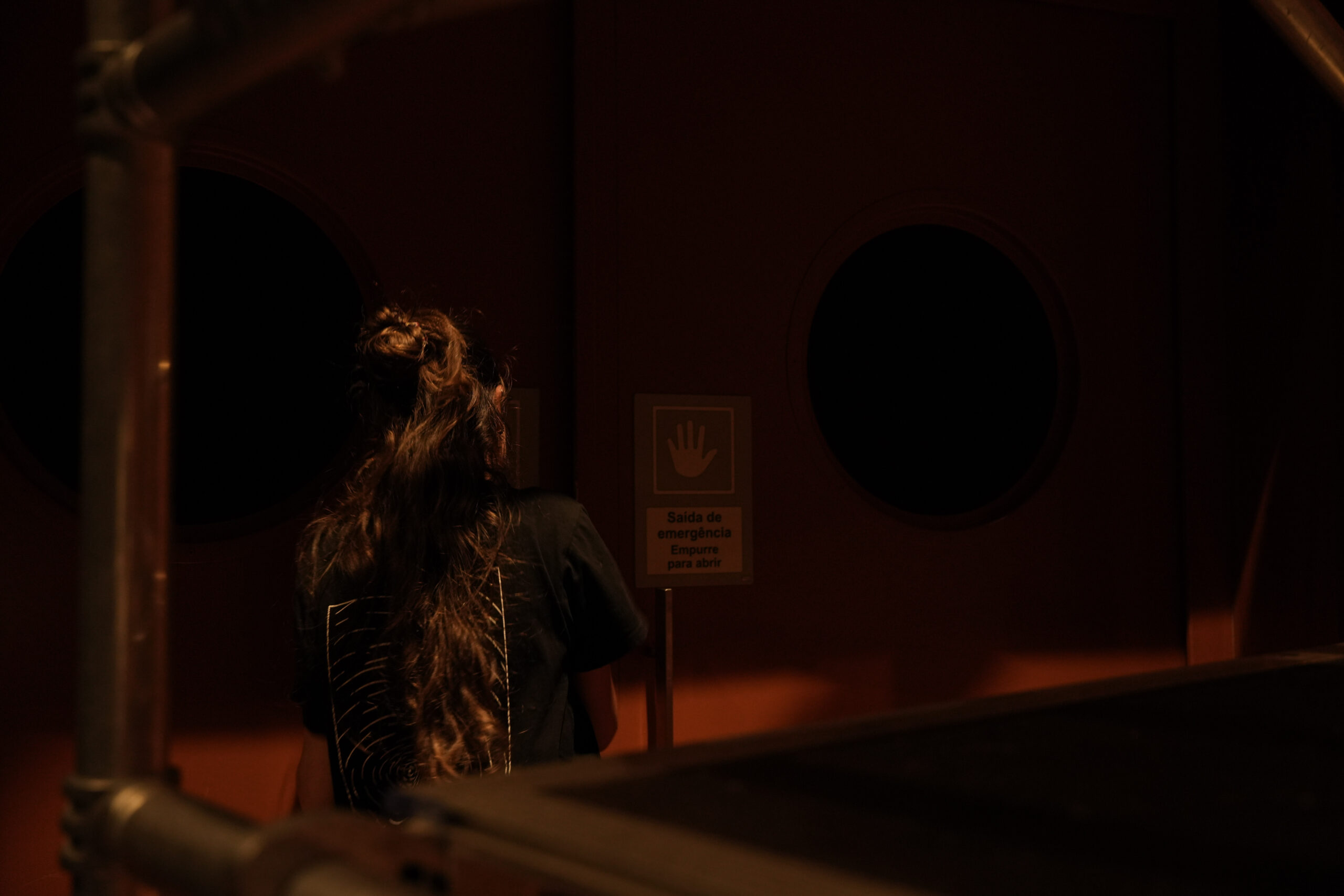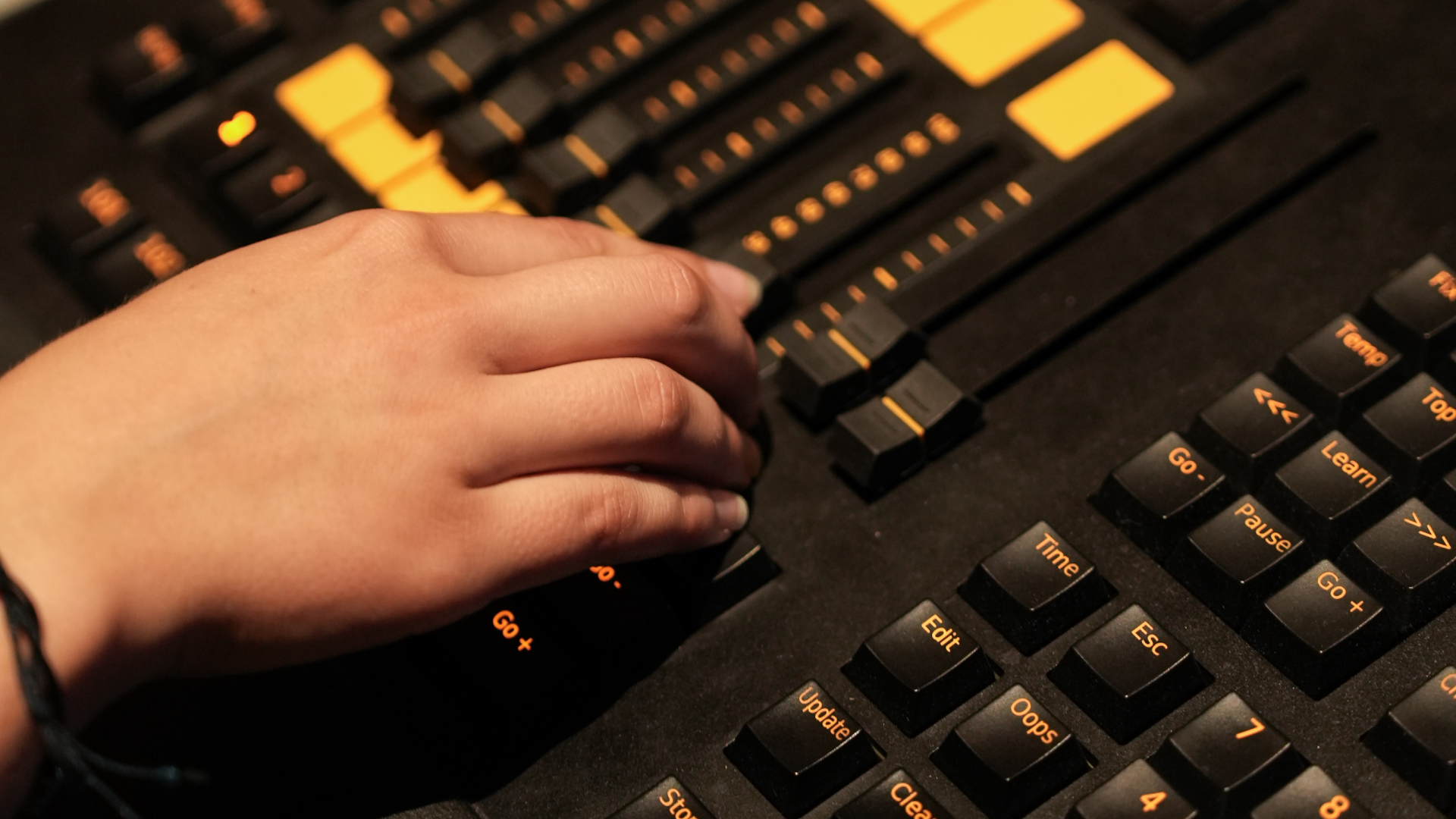© Tomás Laranjo / Instável Production Course
Instável Production Course
Instável Production Course is an irreverent training program that combines essential topics and key professionals through a modular structure with a strong practical component. Rather than providing fixed working models, it aims to provoke critical thinking, stimulate synergies, and foster interaction.
Who is it for?
Aimed at creators, producers and arts professionals who wish to deepen their knowledge in the areas of management, production, communication and technical aspects of the performing arts.
Duration
From 17 March to 16 July 2026
Schedule
Tue–Thu, from 18:30 to 22:30
Optional sessions of the PULSO program: Mondays, from 10:00 AM to 12:00 PM (dates to be determined)
Objectives
– Develop practical skills in planning, management, and communication of cultural projects.
– Understand funding mechanisms at both national and European levels.
– Explore the legal and political framework of cultural production in Portugal.
– Approach cultural production from the perspective of hosting theatres, companies, and independent artists.
– Equip participants with tools for integration into professional contexts.
– Promote collaboration and exchange among peers, creators, and trainers, with direct contact with Porto’s artistic ecosystem.
– Encourage critical thinking and interdisciplinary collaboration.
Internships and professional integration
Instável – Choreographic Centre seeks to create opportunities for participants to engage in short internships, both within the organization and in collaboration with partners.
These experiences provide insight into the job market and the functioning of cultural structures.
In the most recent edition, 18 internship opportunities were created.
Tutors
Instável Production Course features a team of professionals working in the areas of management, production, communication, law, lighting, sound, and stage management.
All maintain a direct connection with the contemporary artistic and cultural context, sharing with participants their practical experience and critical perspective on the challenges of production today.
Some of the trainers confirmed for the next edition:
Ana Figueira
Francisco Cipriano
João Fontes
Mafalda Sebastião
Paula Varanda
Rita Tomás
Samuel Guimarães
Tania Rodrigues
Tiago Ralha
Modules
The course includes a series of modules designed to offer comprehensive training in cultural production, combining theory, practice and experience in real contexts of creation and management.
The Production module introduces the key concepts and terminology of the field, addressing the role of the cultural producer, the creator/producer and self-production. It explores the producer’s tasks, production phases, creation of small production structures, the role of the co-producer, organisation of auditions and artistic residencies, management of theatre teams, search for co-producers, touring and sales, preparation of dossiers, pricing, logistics, and strategies for approaching programmers – also offering insight into the perspective of the cultural programmer.
This module explores the challenges and possibilities of artistic production outside conventional presentation spaces. Participants are invited to rethink the role of production in dialogue with public space, territory, and the communities involved. The aim is to develop a creative, flexible, and critical approach to the management and implementation of projects in non-formal contexts.
This module contextualises cultural production and presents the three main stages of a production: Pre-, Production and Post-production. It covers the functioning of artistic and cultural organisations, the role of an Executive Producer, copyright issues, different contract types and contract analysis, as well as the logistics of a performance within a hosting venue.
In this module, programmers from different national venues are invited to share their perspectives on artistic programming. Across the sessions, participants gain insight into how each programmer defines their curatorial lines, what strategies they apply when selecting projects and what they look for in the proposals they receive.
This module covers the essential aspects of preparing an application for funding — from structuring objectives to presenting budgets and written materials — with practical tips to make each proposal clearer and more effective. Using the DGArtes application model, considered one of the most complex in Portugal, the sessions explore all required components in detail, providing a solid foundation that can be applied to different funding schemes and support programs.
This module addresses processes and practices in cultural production, reflecting on how to optimise work across different spheres. The social sphere includes accessibility, inclusion, justice, dominant narratives, governance, participation and collaborative practices; the environmental sphere deals with issues such as social impact and sustainable choices; the economic sphere explores funding models and sustainability; and the cultural sphere analyses the relationship between sustainability and artistic practice.
This module presents an overview of arts funding sources, from ticket sales and applications to co-productions, sponsorships and patronage. It covers principles of financial management, budgeting for creation and touring projects, financial administration, closing accounts, reporting, financial analysis, and includes practical exercises and group discussions.
This module explores European arts and culture funding programmes, including Portugal 2020, Portugal 2030, Creative Europe, Erasmus+, Europe for Citizens, and Horizon Europe. It features examples of good practices and guidance on how to turn an idea into a project, including the key elements needed to formalise applications.
The aim of this module is to explore strategies, methodologies and tools to connect artistic projects with their audiences – from defining a communication plan to press relations and digital campaign management.
Participants are invited to reflect on the relationship between artistic creation and audiences. The module introduces different approaches to audience engagement, from developing new publics to fostering loyalty and encouraging active community involvement. These sessions provide concrete examples of mediation practices that aim to make art more accessible and meaningful, promoting dialogue between artists, institutions and audiences.
This module offers a reflection on cultural policies in Portugal, exploring the role of the Ministry of Culture and Municipalities in managing and supporting the artistic sector. It includes analysis of programmes such as Apoio às Artes and the Network of Theatres and Cinemas, addressing concepts of cultural democratisation and democracy, combining theory, research and debate.
This module covers the legal status of cultural professionals, applicable taxation, licensing, copyright and related rights, providing participants with essential knowledge to operate legally within the cultural field.
Explores sound propagation and the auditory system, audio equipment, microphones, loudspeakers and mixing desks, including practices in recording, editing, mixing and live sound, and the study of room acoustics.
Covers safety in technical work, basic electricity, lighting equipment and accessories, connection circuits between equipment, the McCandless method, basic lighting angles, study of light and shadow, corrective filters, colours, lighting design and the role of the designer in production contexts.
Introduces general stage terminology, tasks and responsibilities of the stage manager, differences between companies and hosting venues, stage setups and the analysis of technical riders.
The Project Module accompanies participants throughout the course and challenges them to design and develop a small production project to be presented to their peers at the end of the training. This practical component offers an opportunity to apply the knowledge acquired across the various areas of the course. The project-focused classes address themes such as applications, financial management and communication strategies, enabling participants to structure and consolidate their ideas. Throughout the process, participants receive guidance and mentorship from the trainers, who support the development of each project.
This workshop offers a critical look at the spaces where we operate in cultural mediation and production.
Using mapping tools, reflection and collective experimentation, participants explore how places influence cultural practices, who can access those spaces, and how they can be reimagined to broaden participation and cultural circulation.

